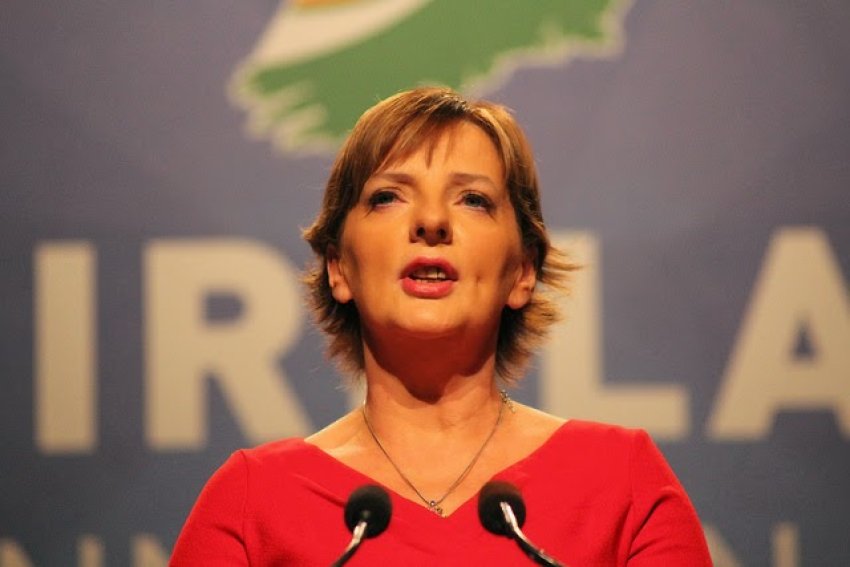
Sinn Fein Member of European Parliament for Ireland South Liadh Ni Riada began a stailc teanga (“language strike”) in the European Parliament.
The representative of the Irish republican party is taking the action against the second-class status afforded the Irish language by the European Union (EU) and to highlight the Irish government’s lack of action on the issue.
In protest, Ni Riada is only speaking Irish for the duration of the Seachtain na Gaeilge (“Irish Language Week”), which runs from March 1 to 17.
Sinn Fein’s Irish language officer, Ni Riada was elected to the European Parliament in May last year and has already been shortlisted for an MEP of the year award.
Irish is the first official language of the Republic of Ireland, but it was only accepted as an official working language of the EU in 2007. It was then immediately granted a renewable five-year “derogation”.
This legal loophole means that European institutions are exempted from providing full translation or interpretation services in Irish, as they are obliged to do with all other official EU languages.
The derogation has been renewed for a further five years, and — unless lifted — will remain in place until 2017.
Announcing her strike at the International Conference on Language Rights in Dublin on February 17, Ni Riada declared: “For the duration of Seachtain na Gaeilge I will be on a language strike. This means I will only speak Irish in my work with the European institutions as a protest against the derogation.
“My aim is to draw attention to derogation and to encourage the Irish Language community and the Irish people in general to put pressure on the government to remedy the situation.
“It saddens me that as a public representative, an Irish person, and a woman from the Gaeltacht [Irish-speaking regions] who grew up with Irish, that I cannot use my own language as I go about my work.
“It angers me when I sit in Parliament and I am told at the beginning of each meeting that an interpretation service is available in each language. Of course, Irish is excluded and ignored.”
She added that if the Irish government made a formal request for the derogation to be lifted, “188 jobs will be created at no great cost to the European Union, but with huge ramifications for the Irish language and Gaeltacht communities. To create these jobs the Irish government needs only send a formal request to the Council of Ministers to end the derogation.”
Video: Ní Riada on language strike/Ní Riada ar stailc teanga - The Left in the European Parliament.
Ni Riada commenced her strike during a March 2 discussion in which she made her contribution solely in Irish, but was interrupted almost immediately.
After the meeting, Ni Riada criticised her treatment by the committee. “It was inadmissible what happened in the committee today. I contacted the committee secretariat last week to inform them of the strike,” she said.
“I explained that … if they were not willing to provide interpreting, that my political advisor would be able to do so on my behalf.”
Ni Riada has started an online petition calling on the Irish Government to formally request the derogation be lifted.
[Slightly abridged from Duroyan Fertl's blog Hintadupfing.blogspot.com.]